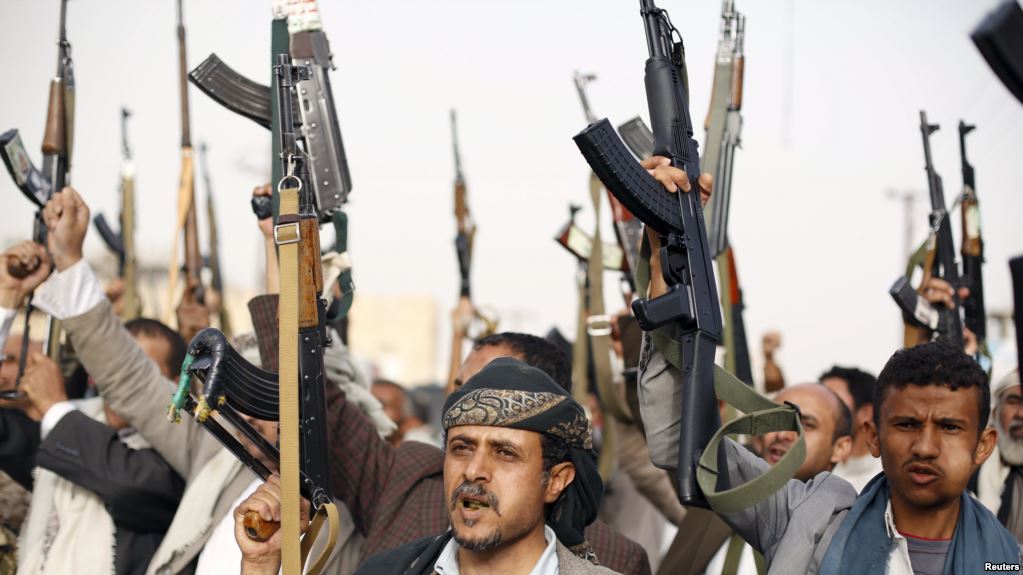In an interview with the website of the Strategic Council on Foreign Relations, Hassan Hanizadeh referred to the announcement of the leader of the Yemeni Ansarollah group on receiving a secret message from the United States about peace in Yemen, and said: A series of messages have been sent from the United States to the Ansarollah that any agreement between Saudi Arabia and Yemen should be made under the supervision of the United States.
He continued: Meetings were also held between Ansarollah delegation and the US ambassador to Kuwait in which the ambassador warned that if Ansarollah wants Saudi Arabia to end the Yemeni war, the US will make the Yemeni rial fall sharply and will prevent the agreements to be reached.
Referring to Ansarollah’s “advances” on the battlefield with the Saudi coalition, the expert on West Asia affairs said: The Saudis have recently expressed regret or, in any case, have announced that they intend to reach an agreement with Ansarollah. Mohammed bin Salman is trying to create a safe margin in the region because he is concerned about Joe Biden’s entry into the White House.
Hanizadeh considers sending of messages to Ansarollah in the hope of ending the Yemeni war, sending messages to put an end to Qatar-Saudi conflict, and sending messages to Turkish President Recep Tayyip Erdogan to end Turkey-Saudi-UAE conflict as the severity of Saudi Crown Prince Mohammed bin Salman’s concern over his future, adding: Joe Biden’s outlook at Saudi Arabia is different from Donald Trump’s viewpoint.
He further explained: According to the announced positions, Joe Biden is expected to reopen many cases against Saudi Arabia, including the issue of the Yemeni war and the massacre of its people by Saudi Arabia, the issue of the painful murder of Saudi journalist Jamal Khashoggi, and the issue of Mohammed bin Salman’s five hundred billion dollars ransom to Donald Trump. Therefore, Bin Salman is very worried about getting out of the power cycle.
Possibility of Biden’s Attempt for Bin Salman’s Ouster
The expert on international affairs continued: Biden has quite friendly relations with “Muhammad bin Nayef”, the former Crown Prince of Saudi Arabia, who is now under house arrest, and he will probably try to replace Mohammed bin Salman with Muhammad bin Nayef. This set of events that may happen in the future has caused concern for Mohammed bin Salman who, before the end of Donald Trump’s presidency, intends to put an end to the Yemen war and is now trying to negotiate with Qatar in order to resolve his differences with Qatar and also establish friendly relations with the government of Recep Tayyip Erdogan.
Power of Resistance to Change the Balance of Power in the Region
Hanizadeh described the US letters to Ansarollah and the attempt to negotiate with them as a sign of the effectiveness of the Resistance, saying: In fact, Ansarollah has been able to change the balance of power in its favour in recent years by relying on its native resources. The ballistic missiles manufactured by the Yemeni army and Ansarollah, which actually dealt a heavy blow to the Saudi economic and military facilities, changed the ground conditions in favour of the Yemeni people and this has caused concern for the Saudi army.
He added: The Saudi army has been battered after five years of war against Yemen and is unable to confront the Yemeni army and people’s forces. For this reason, it seems that one of the factors that led Mohammed bin Salman to resort the United States in order to put an end to the war in Yemen is the issue of the balance of power, which has now changed in favour of Ansarollah. He is also worried about the future of Joe Biden’s policies. The combination of these factors has led Saudi Arabia and the person of Mohammed bin Salman to try to get out of the swamp of Yemen in a dignified manner.
Hanizadeh emphasized: Certainly, the Resistance as a value and revolutionary movement can change the balance of power. What happened in Lebanon during the 33-day war in 2006, what happened in Iraq, what we are witnessing now in Yemen, is the result of the popular resistance. Despite the fact that the Resistance does not possess a sophisticated weapon, the spirit of the Resistance and the will to confront the aggressive currents have led the arrogant powers to reach the conclusion that the Resistance can change regional balances in its own favor.










0 Comments